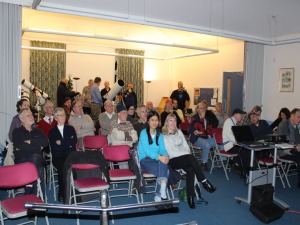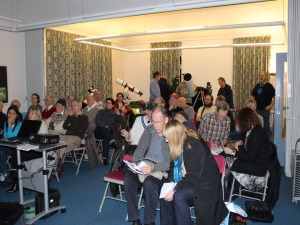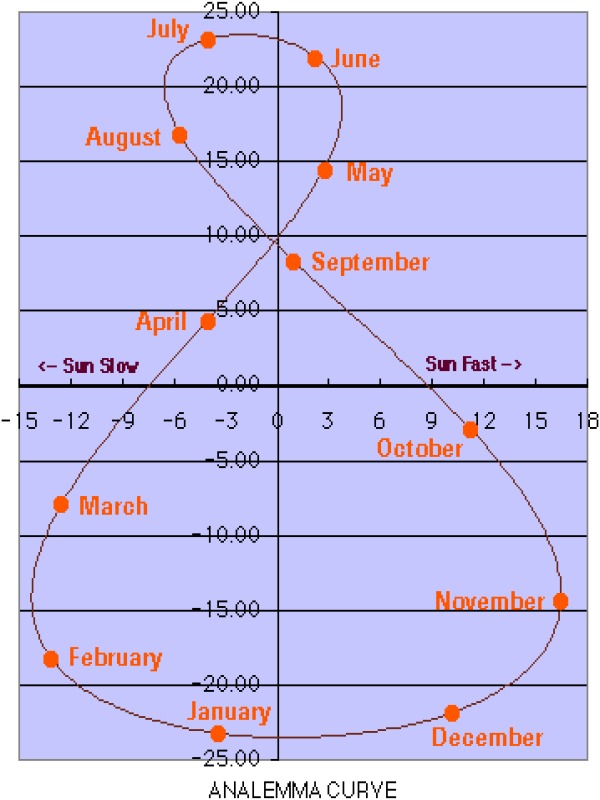We are back at our normal venue from 3rd Sept. 2021 |

This page lists our monthly meetings. For other events open to the general public, see our Events page
Dates are set well in advance but the 'content' of the meeting is only updated (from our 'meetings database') when details are entered, so 'blank' or 'TBA' may be shown when data has not yet been entered (please be assured that the meeting will take place and a talk on (some) Subject will be delivered by (some) Speaker ! )

During the COVID-19 restrictions, all meetings are being held on-line using ZOOM. Meetings are normally held at the Church Hall (aka 'The Soltau Center') of St James-the-Less, Stubbings, Maidenhead SL6 6QW, from 7.30 (for a ZOOM link, or map and directions, see the About MAS (Where we meet) page
The Main Topic is usually delivered by an invited guest speaker. We aim to provide a diverse range of subjects linked (in some way) to Astronomy - whilst the 'Second Session' is typically delivered by one of our members. If time allows, the evening concludes with a short 'What to see this month'.
Details of a typical evening (times are approximate) :- 7.30pm. The evening starts with the Chairman delivering any important Announcements and then introducing the main speaker. 7.45pm (latest). Main Topic Speaker gets up and the lights are turned off. If you arrive after 7.45, please enter the Hall by the first door (on the right, after the entrance) and please be extra careful when finding a seat at the back of the Hall as members often setup telescopes there ! 8.45-9pm +. Coffee break during which visitors often chat with members who have set-up their telescopes at the back of the hall. If the weather is good, sometimes members will nip out for a quick look at the sky. Smoking is permitted outside the Hall, however smokers are asked to avoid any 'observers' (smoke particles always seem to get into optical equipment, no matter how well 'sealed' it may be) 9.15pm (at the latest). The 'Second Session' then runs for about 45 mins, typically ending with "What's Up !" (what to look out for in the sky this month) 10pm. We aim to clear the hall by 10pm. Post meeting Observing. If the weather is good, the Observing Organiser then leads the way to our chosen observing site, or (if the weather looks even a slight bit 'iffy) members sneak off to the local Pub instead :-)
Next meeting :
(+) 7 Jun 2024 MAS 67th AGM - (Annual General Meeting)
Meetings Archive |
The meetings archive gives an 'overview' of the Society activities over the past 10 years (see also the Events page).
Members have access to the full 'History of MAS' (including AGM minutes going back to 1957) along with full names and photos
The MAS 'year' runs from September of one year to June of the following. The end of year AGM in June elects the Committee for the following year (there are no meetings in July and August - although often members will meet informally at the local pub - which gives the new Committee time to 'get a grip' on running the Society)
The "short cuts" (in the 'title bar', at the very top of this page) will take you to the June AGM entry for the end of that MAS year
The Maidenhead Astronomical Society meetings archive (last 10 years only)
Missed a meeting, or can't remember when a topic was last covered ? Here is the archive of past MAS meetings.
Note that this list covers only our monthly meetings and AGM's. Reports on Observing and Other Events are separate pages
If notes were taken at the meeting, the date below is underlined and shown with a '(+)' = click to see the notes (if no '(+)' is shown, no notes were taken - or, more likely, the webmaster hasn't found them and posted them up yet :-) )
(+) 3 May 2024 The Exploration of Venus - (Jim House)
(+) 5 Apr 2024 The Visible Universe - (Doctor Max Whitby)
(+) 1 Mar 2024 Water in the Universe - (Prof Jonathan Tennyson)
(+) 2 Feb 2024 The Mechanics of Eclipses - (Sheridan Williams FRAS)
(+) 5 Jan 2024 Telescope Parade - (and the Parker Solar Probe by Arthur White)
(+) 1 Dec 2023 SPECIAL FEATURE Herschels Lunatick Friends - (Andrew Lound)
(+) 3 Nov 2023 Binary Pulsars Einsteins Perfect Laboratories - (Barry Kellett)
(+) 6 Oct 2023 Solar Space Weather SOHO - (Dr Eric Dunford)
(+) 1 Sep 2023 The Changing Climate of Mars - (Peter Read)
(+) 2 Jun 2023 MAS 66th AGM - (Annual General Meeting)
(+) 5 May 2023 Two talks by members - (LATE CHANGE)
(+) 31 Mar 2023 Overview of telescopes and mounts - (Dave Hayes)
(+) 3 Mar 2023 Study of our Galaxy in the Era of Gaia - (James Binney)
(+) 3 Feb 2023 The Galaxy without a dark side - (Barry Kellett)
(+) 6 Jan 2023 Telescope Parade and Workshop - (by members)
(+) 2 Dec 2022 Xmas Social Photo Comp and Quiz - (set by members)
(+) 4 Nov 2022 Exploration of Jupiter - (Dr Mike Legett)
(+) 7 Oct 2022 The Lunar 100 - (Dr Lilian Hobbs)
(+) 2 Sep 2022 InfraRed Astronomy - (Dr Eric Dunford)
(+) 10 Jun 2022 MAS 65th AGM - (NOTE 2nd Friday)
(+) 6 May 2022 Gravitational Waves - (Joshua Pooley)
(+) 1 Apr 2022 Saturn - (Michael Foulkes)
(+) 4 Mar 2022 Update on the Exploration of Mars - (Jim House)
(+) 4 Feb 2022 What Astronomy Tells Us About The Origins of Life On Earth ? - (James Hough)
(+) 7 Jan 2022 Telescope Parade and Workshop - (by Members)
(+) 3 Dec 2021 Christmas Quiz set by members - (followed by Social Evening)
(+) 5 Nov 2021 CANCELLED - (Hall closed)
(+) 1 Oct 2021 Dark Nebulae - (Owen Brazell)
(+) 3 Sep 2021 How we reached the Moon - (Jerry Stone)
(+) 4 Jun 2021 63rd AGM (ZOOM on line meeting)
(+) 7 May 2021 Milestones in Astronomy - (Rod Hine (ZOOM on line meeting))
(+) 2 Apr 2021 The Red Sun - (Lyn Smith (ZOOM on line meeting))
(+) 5 Mar 2021 Tour of the Universe - (Jane Green (ZOOM on line meeting))
(+) 5 Feb 2021 Space Vehicles - (Graham Bryant (ZOOM on line meeting))
(+) 8 Jan 2021 The Astronomer's Toolkit - (Dr Lee Anne Willson (ZOOM on line meeting))
(+) 4 Dec 2020 Xmas Quiz - (set by members (ZOOM on line meeting))
(+) 6 Nov 2020 The Monster in the Crab - (Gary Poyner (ZOOM on line meeting))
(+) 2 Oct 2020 Is there anyone out there ? - (Bob Mizon (ZOOM on line meeting))
(+) 4 Sep 2020 Two eyes are better than one - (Stephen Tonkin (ZOOM on line meeting))
(+) 5 Jun 2020 COVID19 Postponed MAS 62nd AGM
(+) 1 May 2020 COVID19 Postponed The Monster in the Crab - (Gary Poyner)
(+) 3 Apr 2020 COVID19 meeting CANCELLED
(+) 6 Mar 2020 Recent Developments in Gravity Wave Research - (Martin Dyer)
(+) 7 Feb 2020 Ask an expert Q and A panel - (By Members)
(+) 3 Jan 2020 Equipment Parade - (By members)
(+) 6 Dec 2019 Xmas Quiz and social - (By members)
(+) 1 Nov 2019 The Origin of the Solar System - (James Fradgley)
(+) 4 Oct 2019 Kew Observatory and the origins of modern solar physics - (Dr Lee Macdonald)
(+) 6 Sep 2019 History of Mars Exploration - (Jim House)
(+) Aug 2019 Summer break - (no meeting)
(+) Jul 2019 Summer break - (no meeting)
(+) 7 Jun 2019 MAS 61st AGM - (and Photo Competition prizes)
(+) 3 May 2019 13 Journeys in Space and Time - (Colin Stuart)
(+) 5 Apr 2019 Space Weather - (Dr Colin Forsyth)
(+) 1 Mar 2019 The Extremely Large Telescope (ELT) - (Dr Aprajita Verma)
(+) 1 Feb 2019 Ask the Expert - (members panel)
(+) 4 Jan 2019 Equipment exhibition - (and EGM)
(+) 7 Dec 2018 Christmas Quiz and Social
(+) 2 Nov 2018 Short talks - (by members)
(+) 5 Oct 2018 The Future is out of this World - ( Dr Stuart Eves FRAS)
(+) 7 Sep 2018 13 Journeys through space and Time - (Postponed new date TBA)
(+) Aug 2018 Summer break - (no meeting)
(+) Jul 2018 Summer break - (no meeting)
(+) 1 Jun 2018 MAS 61st AGM - (and Photo Competition prizes)
(+) 4 May 2018 Using Video and an Aurora Encounter - (by members)
(+) 6 Apr 2018 Berkshire Astronomers - (Kenelm England FRAS)
(+) 16 Mar 2018 NEW DATE Jupiter and the Juno Mission - (Dr John Rogers)
(-) 2 Feb 2018 Talks by Members
Friday, 2nd February 2018 - Talks by Members
Report by Steve
Andy Tate - "Some aspects of Gravity"
Andy started with a quick overview of the 'Physics of the Big' (Einstein's General Relativity or 'GR') and the 'Physics of the Small' (Quantum Mechanics or 'QM') - and then mentioned what happens when the two meet - in a Black Hole (where GR equations break down into infinities and QM fails to 'explain' Gravity at all)
Next he went into 'how we got there', via Newtons 'clockwork' Universe (with a formulation of Gravity that could not explain the orbit of Mercury and was 'incompatible' with a Static Universe (Newton's Gravity would inevitably lead to the 'Big Crunch' as everything attracted everything else)
After a quick mention of Faraday and Maxwell (Electromagnetism) we get to Einstein's Special Relativity (fixed speed of light) and General Relativity (time passes at different rates for those approaching C or in a gravitational field) and 'Space Time' (where Gravity = a bend in Space Time) and the concept of Space as a 'field' ..
Then we reach QM with Wave /Particle 'duality', the Schrodinger (photon) wave equation and de-Broglie general (particle) wave equation (where a particle's wavelength = Planck's Constant divided by it's Momentum)
Finally he looked at the latest attempt to link QM and GR. This is an approach that considers the Planck length, which can be derived from Planck's Constant, the speed of light and the Gravitational constant.
However it turns out that the de-Broglie wavelength of a particle with a radius = the Planck length also has a Schwarzchild's radius equal to the Planck length. This means that nothing can exist between zero and the Planck length (because anything smaller the Planck length would instantly collapse to zero)
This leads directly to the theory of 'quantised' Space, and that a Black Hole shrinks to the Planck length (and no smaller). This prevents the 'infinities' of GR, however it means a Black Hole is not is not stable. When the collapse reaches the Planck length it can then only 'rebound'. Why don't we see this ? Well, as the mass shrinks to Planck length, it's gravitational field increases and time itself slows down. Time slows so much that even primeval Black Holes still haven't had enough time to expand back out (yet) ...
Interestingly, this also means that the Big Bang must have started at radius = Planck length (and not zero) - which in turn points to a 'cyclic' Universe. This contradicts the current observation that the expansion of the Universe is speeding up - but since we don't know why it's speeding up we can't (yet) say that it won't go into reverse at some future time.
For more on this, see Carlo Rovelli's book "Reality Is Not What It Seems: The Journey to Quantum Gravity" (available on Amazon, paperback £6.51)
Peter Hainsworth - "Dark sky observing from the Isle-of-White"
On 17-20 Nov 2017, Peter's wife organised an 'Astro Holiday' on the Isle-of-White !
His accommodation was close to Godshill, near Brightstone (where the IOW Star Party is held) and next to the Model Village (Ed. it's not the one in Hot Fuzz, although the Church Spire looks lethal enough :-) )
On checking the 'dark sky' map, Peter decided to take along a 'small' telescope (Takahashi FS-78 refractor, 78mm dia, 630mm F8.1) on a non-auto-guide GEM GoTo mount (Vixen Atlux). Imaging would be performed using his Sony α NEX-6, a Compact System (mirror-less) camera (16.1MP APS-C).
He started by showing us a few 'day time' photos of the 'back yard' of the Guest House where he stayed (and where he set up his telescope). The night-time photos were all taken at ISO6400
The first photo of the night sky taken with the camera and telescope (30s) showed something that looked like 'star-trails' but seen only on the brighter stars. This was due to vibrations caused by walking and 'transmitted' through the rather spongy water soaked ground. Luckily he spotted this in time to stand still (whilst the shutter was open) for the rest of the night !
He then showed a series of images taken via the telescope - a series of wide field shots containing multiple galaxies = M31+32 NGC205, Monkeys Hd. Neb (213s), Gt. Orion Neb. (71s), M51 Whirlpool Galaxy (55s), the Leo triplet M65&66 + NGC3625 (using a Barlow lens, 77s), Bodes Galaxy M81&82 + NGC3077 (30s), the Surfboard/Owl Neb, the Flame Neb (62s).
Finally we were treated to another photo of the sky over the roof of the house taken with 50mm lens, 3200IS 15s.
Robin Oldman - "The Analemma explained"

Although most members were aware that the Sun's annual 'path through the sky' followed a rather complex path (shorter days in the winter, Sun doesn't rise so high in the sky), few recognised the name for this !
The Analemma is a plot of the Sun's position each day of the year at the exact same clock time (usually noon) - we can make one ourselves by taking a photo of the sun each day of the year (and stacking them all together). As expected, we get different heights in the sky but it's not at it's highest (at noon) in mid-summer nor at it's lowest (at noon) at mid-winter ! The time variation in the noon position added to the differing heights results in a 'figure of eight', the Analemma.
(Ed. the behavior of the sun was known in antiquity but the name Analemma is quite modern = invented by a globe manufacturer, c. 1770 in England and taken from Latin analemma "the pedestal of a sundial" derived from the Greek analemma "prop, support")
The left-right variation shows the 'difference' between (clock) noon and Sun noon ..
Indeed, most of the year, Sun 'noon' is either 'early' or 'late' (compared to clock time), as well as rising higher (or lower) in the sky than might be expected, as shown in the diagram, left
The hight (north–south component) of the 'figure of 8' is due to the change of the Sun's declination (caused by the tilt of the Earth's axis, 23.5 degrees))
The time variation (east–west component) is due to nonuniform rate of change of the Sun's right ascension, which is caused by the effect of the Earth's axial tilt (or obliquity = 23.5 degrees) and it's orbital eccentricity (about 1.7%), when combined together (as shown in the graph, right).Ed. those wishing a more detailed explanation (and some actual photos) are directed to Stanford Solar Center = which also has some tips on how create your own image !
after the break:-
"What's Up" (and Members images of Orion) - Alun with a low-down on sky events in the coming month and some new photo challenges !
(Ed. his full presentation can be downloaded from here (PDF))
Cares was at opposition on 31 Jan (about +7 mag, a binocular object)
Moon & Jupiter will be early morning objects from7th Feb, Moon + Mars from 9th and Moon + Saturn on 11th, all near the Eastern horizon.
Imaging challenge for Feb is Gemini Messier and NGC objects
On 23rd Feb. at 4:37pm (i.e. just before dusk) the Moon occults Aldebaran - and Alun challenges members to image the 'first contact' !
Alun's January Challenge was to image Orion :-


(left) Orion imaged by Tim H. with a Canon 60Da, 40mm lens + CLS filter, F5, 7x 90s exposers on a tripod plus a Vixen clock-drive.
(right) A photo of Orion from his back garden by Matt L.Note. Tim H's "The importance of time keeping in astro observation", is held over to a later date
All our indoor Meetings are open to the public, however non-members are asked to make a contribution of £2 toward the hall hire costs (this may be collected by Fred, our Membership Secretary, at the door on arrival, or left at the 'Tea hatch' at half time).
This note last modified: 11th Jun 2019 09:21.